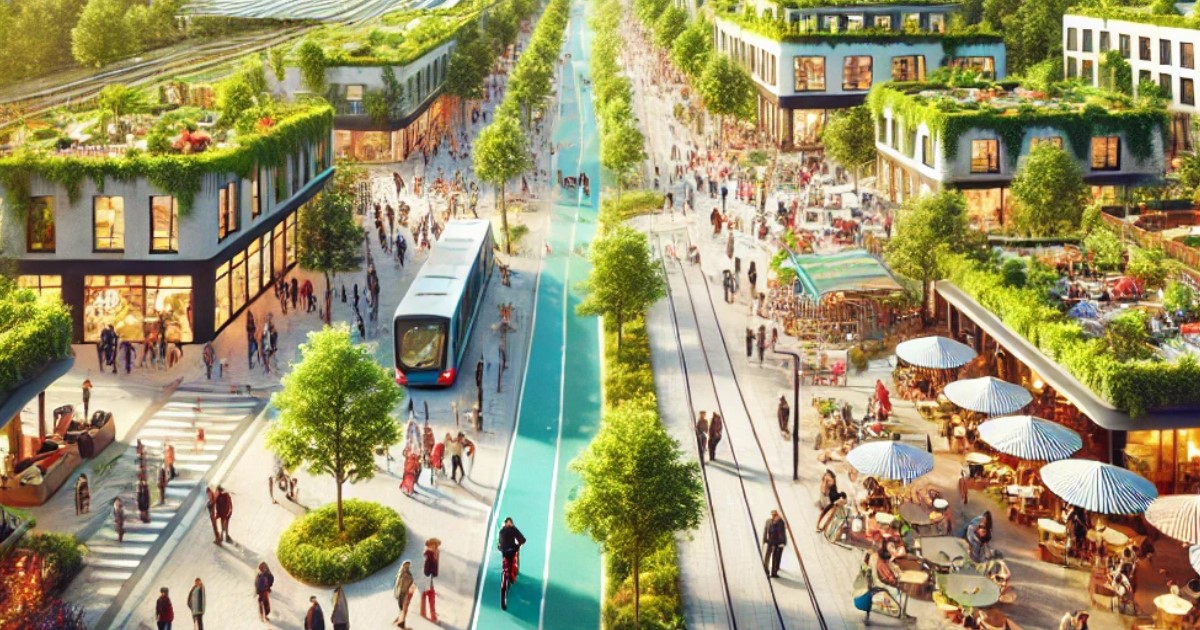Advancing Energy Efficiency, NetZero Strategies, and Decarbonization for Sustainable Built Environments
A special issue of Sustainability (ISSN 2071-1050). This special issue belongs to the section "Green Building".
Deadline for manuscript submissions: closed (31 December 2025) | Viewed by 302

Special Issue Editors
Interests: net-zero energy/carbon design; environmental sustainability; cultural heritage; sustainable communities and regeneration; sustainable architecture and environmental design of buildings; BIM; the application of CFD in building design; renewable energy technology; architecture design studio teaching
Interests: various materials, products, and systems; retrofit-friendly thermal insulation from agro-waste fibers; simple technologies with advanced machinery; affluent and less privileged environments
Special Issue Information
Dear Colleagues,
The global imperative to mitigate climate change, reduce resource consumption, and improve living standards has elevated the importance of energy efficiency and sustainability in the built environment. The built environment accounts for a substantial proportion of global energy use and greenhouse gas emissions, driving the need for innovative solutions and integrative approaches. This Special Issue seeks to advance scientific knowledge and foster interdisciplinary collaboration in designing, operating, and retrofitting sustainable and energy-efficient built environments.This issue contributes to ongoing global conversations about achieving net-zero carbon goals, promoting resilience, and ensuring social equity within urban and rural infrastructures by exploring cutting-edge technologies, policies, and methodologies.
This Special Issue aims to gather state-of-the-art research and reviews that bridge the gap between theoretical frameworks and practical applications in energy efficiency and sustainability in the built environment. Contributions should align with Sustainability’s mission to disseminate impactful research addressing sustainability's environmental, social, and economic dimensions.We welcome interdisciplinary studies and innovative methodologies that reflect the complexity and interconnectedness of sustainability challenges in the built environment. Submissions may include topics ranging from material science advancements to urban policy analysis, reflecting the diverse strategies needed to promote energy efficiency and sustainability.
Topics of interest include, but are not limited to:
Energy Efficiency in Building Design and Retrofitting
- Advanced materials for energy conservation.
- Passive and active energy-saving technologies.
- Energy performance modeling and optimization.
Sustainable Construction and Materials
- Lifecycle assessment of building materials.
- Circular economy approaches in construction.
Integration of Renewable Energy Systems
- Solar, wind, and geothermal applications in the built environment.
- Building-integrated photovoltaics (BIPVs).
Digital Tools and Smart Technologies
- The evolving role of BIM in sustainable built environments.
- Smart grids and energy management systems.
- IoT and AI applications for sustainable urban development.
Climate Resilience in Urban Design
- Green roofs, vertical gardens, and urban greening.
- Adaptive design for extreme weather events.
Policy and Socioeconomic Dimensions
- Urban planning for sustainable cities.
- Energy regulations and policy impacts.
Human-Centric and Health-Focused Approaches
- Indoor environmental quality and occupant health.
- Thermal comfort and behavioral studies in energy usage.
We invite original research articles, comprehensive reviews, and case studies that address these themes. Contributions should offer novel insights, methodologies, or applications that push the boundaries of current knowledge in energy efficiency and sustainability in the built environment.
Dr. Amira Elnokaly
Dr. Farres Yasser
Guest Editors
Manuscript Submission Information
Manuscripts should be submitted online at www.mdpi.com by registering and logging in to this website. Once you are registered, click here to go to the submission form. Manuscripts can be submitted until the deadline. All submissions that pass pre-check are peer-reviewed. Accepted papers will be published continuously in the journal (as soon as accepted) and will be listed together on the special issue website. Research articles, review articles as well as short communications are invited. For planned papers, a title and short abstract (about 250 words) can be sent to the Editorial Office for assessment.
Submitted manuscripts should not have been published previously, nor be under consideration for publication elsewhere (except conference proceedings papers). All manuscripts are thoroughly refereed through a single-blind peer-review process. A guide for authors and other relevant information for submission of manuscripts is available on the Instructions for Authors page. Sustainability is an international peer-reviewed open access semimonthly journal published by MDPI.
Please visit the Instructions for Authors page before submitting a manuscript. The Article Processing Charge (APC) for publication in this open access journal is 2400 CHF (Swiss Francs). Submitted papers should be well formatted and use good English. Authors may use MDPI's English editing service prior to publication or during author revisions.
Keywords
- energy efficiency
- sustainable built environment
- green building design
- renewable energy integration
- smart cities
- passive design strategies
- building performance simulation
- lifecycle assessment
- building information modeling (BIM)
- IoT
- AI
- circular economy in construction
Benefits of Publishing in a Special Issue
- Ease of navigation: Grouping papers by topic helps scholars navigate broad scope journals more efficiently.
- Greater discoverability: Special Issues support the reach and impact of scientific research. Articles in Special Issues are more discoverable and cited more frequently.
- Expansion of research network: Special Issues facilitate connections among authors, fostering scientific collaborations.
- External promotion: Articles in Special Issues are often promoted through the journal's social media, increasing their visibility.
- Reprint: MDPI Books provides the opportunity to republish successful Special Issues in book format, both online and in print.
Further information on MDPI's Special Issue policies can be found here.






